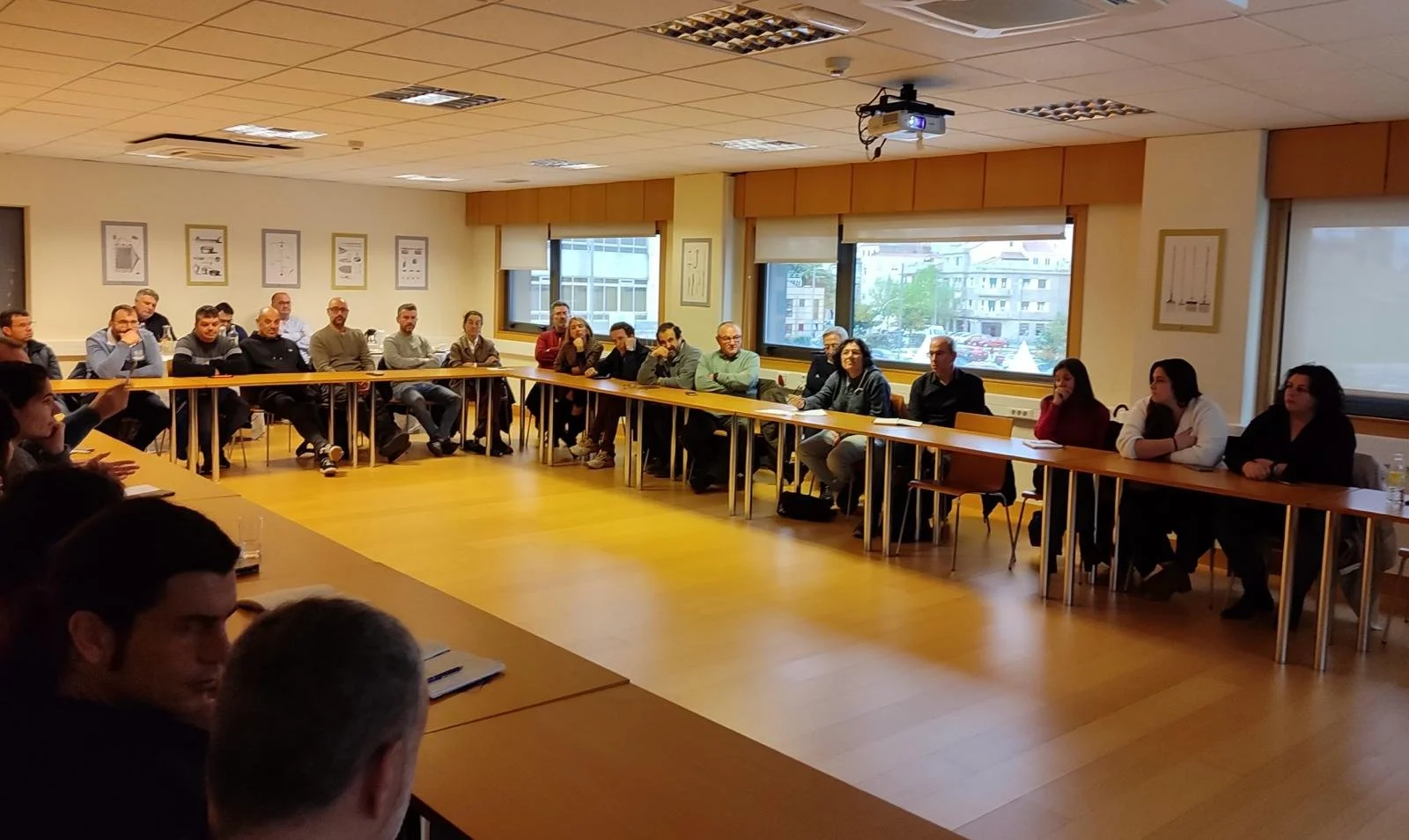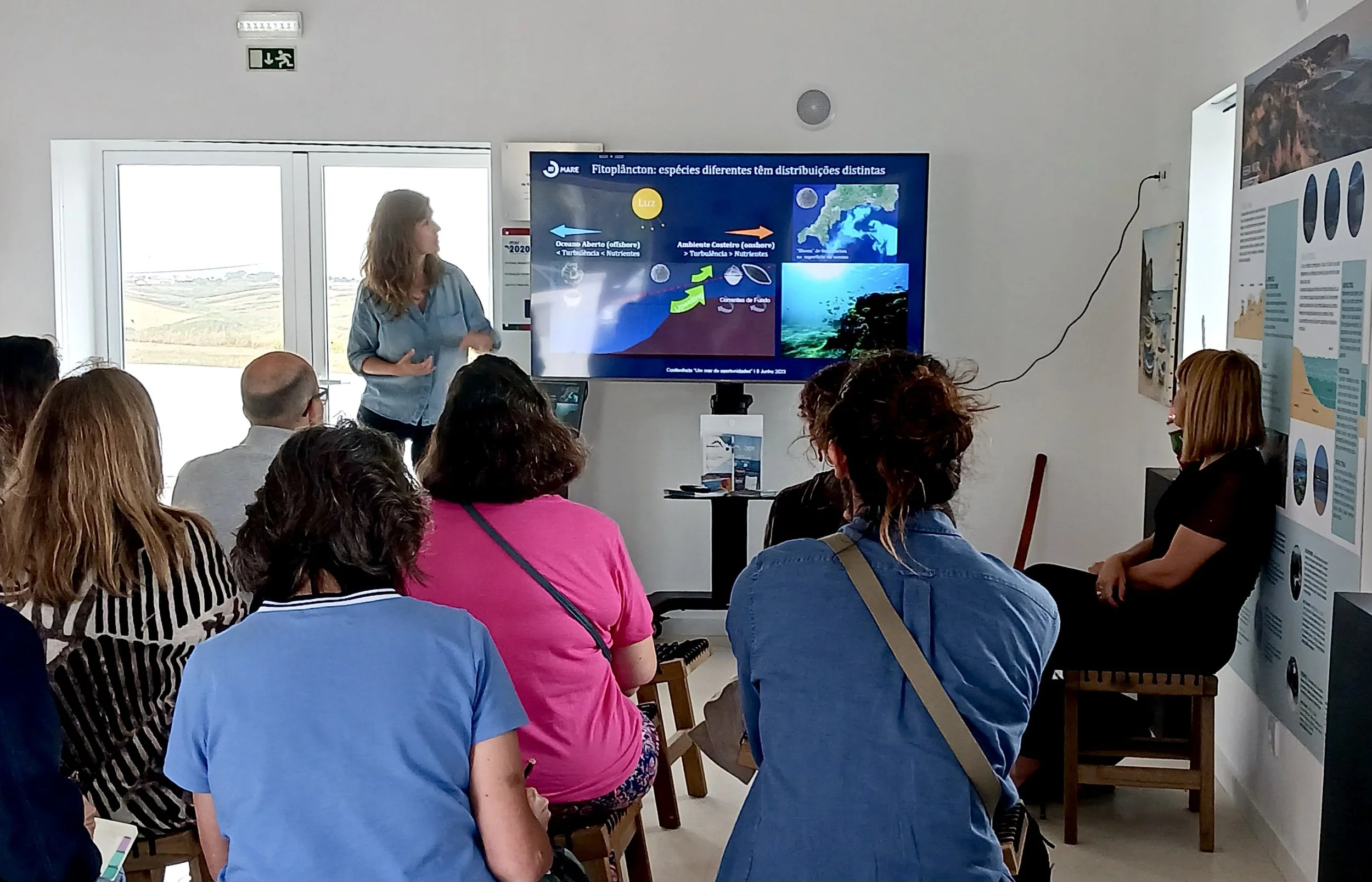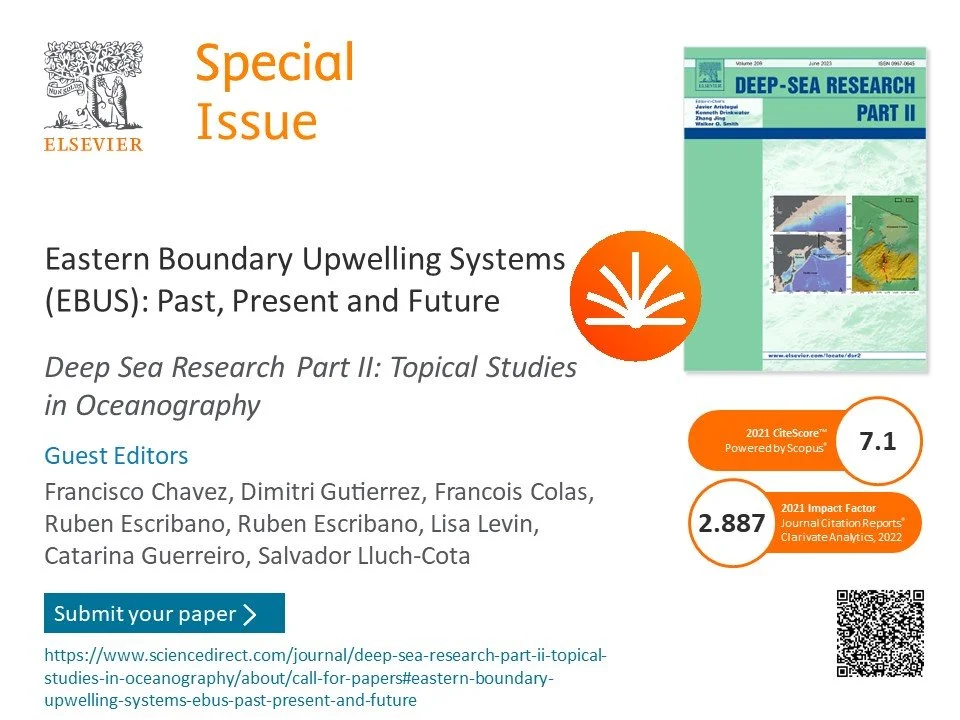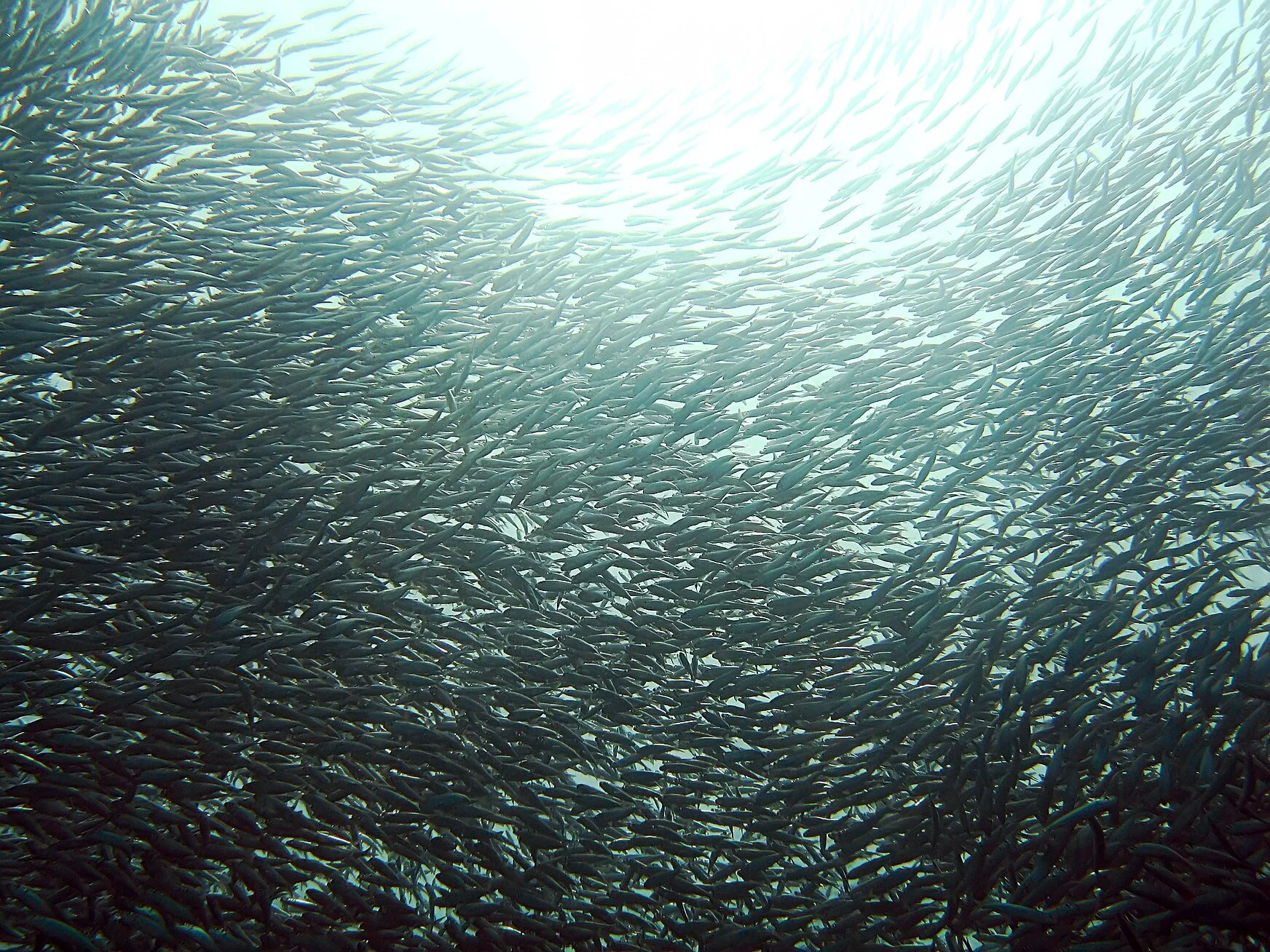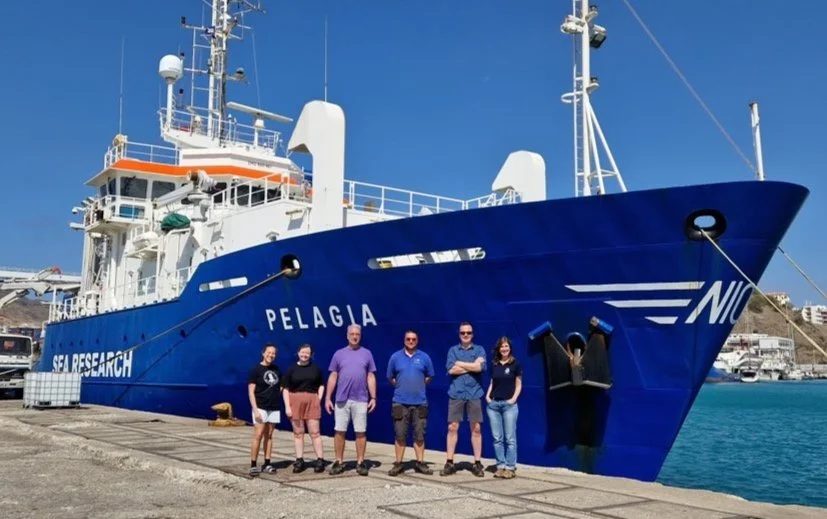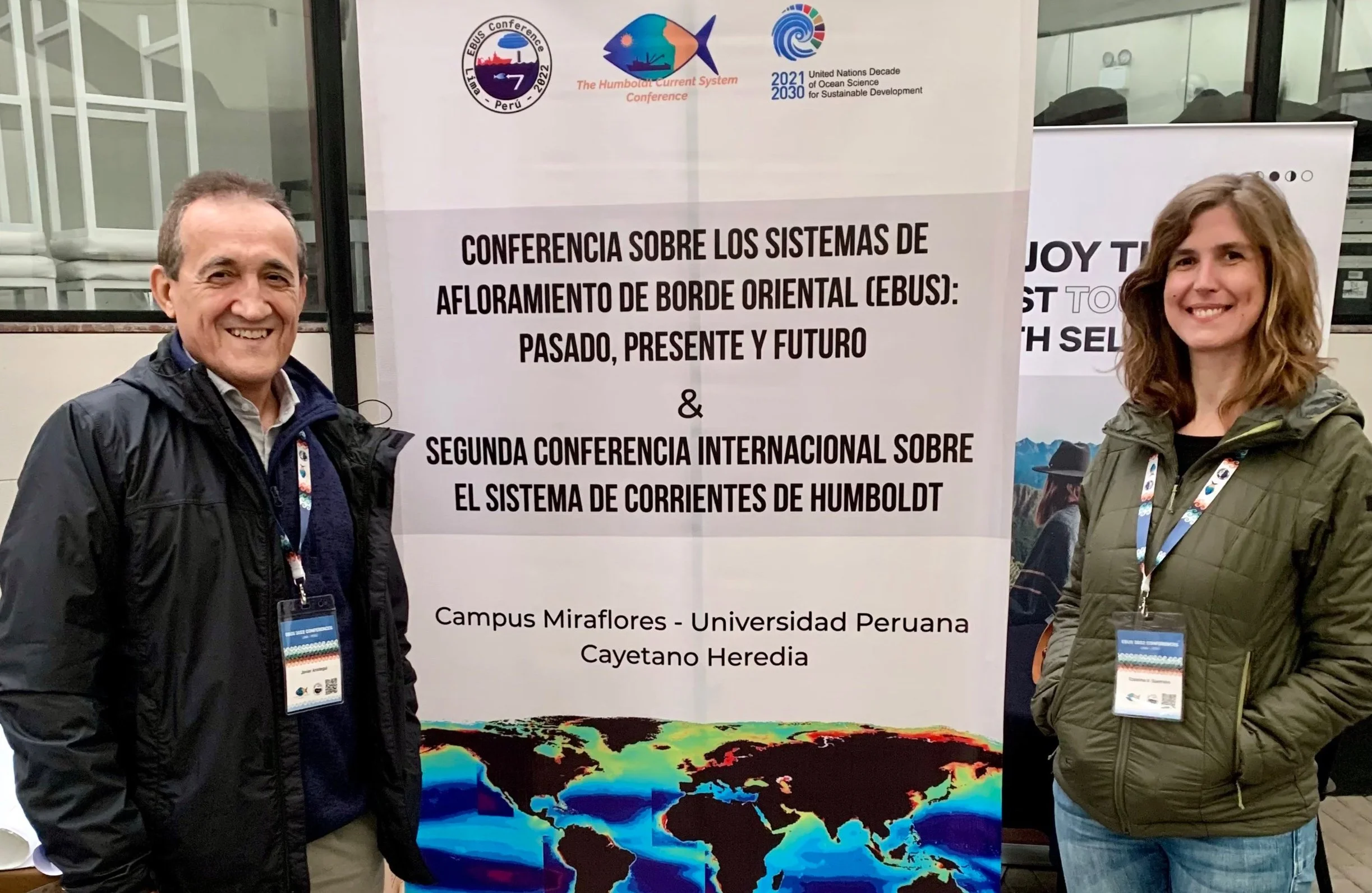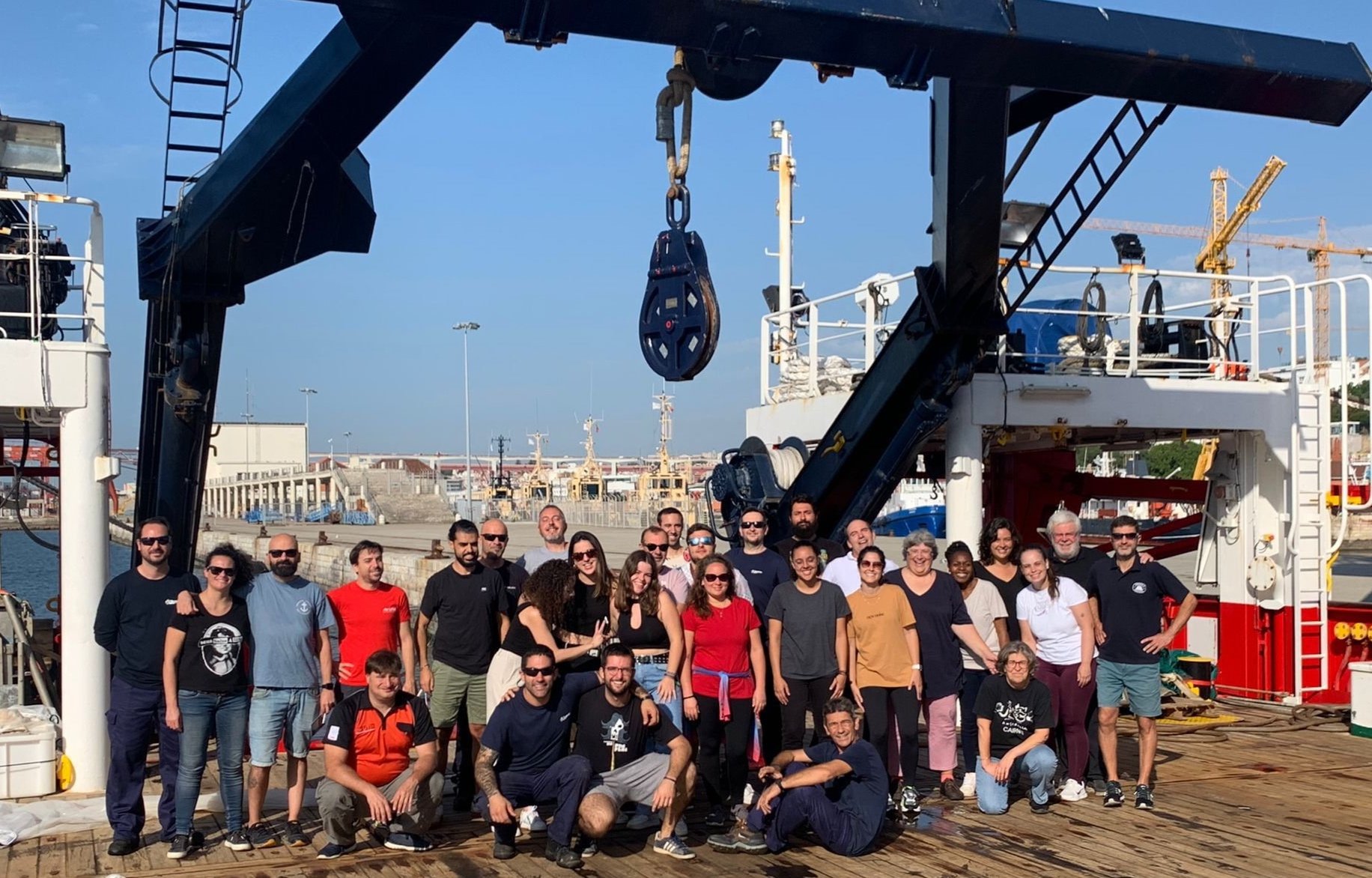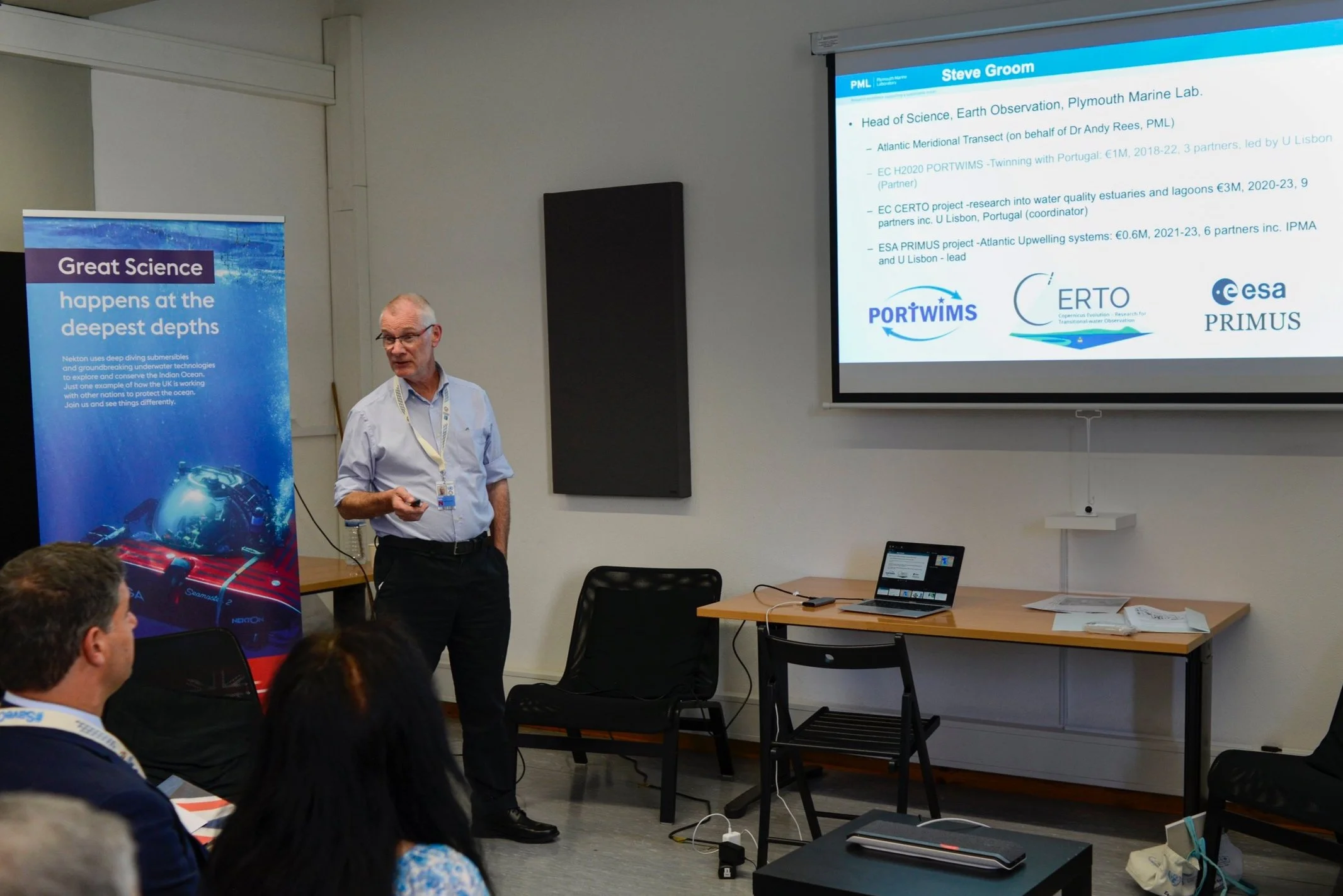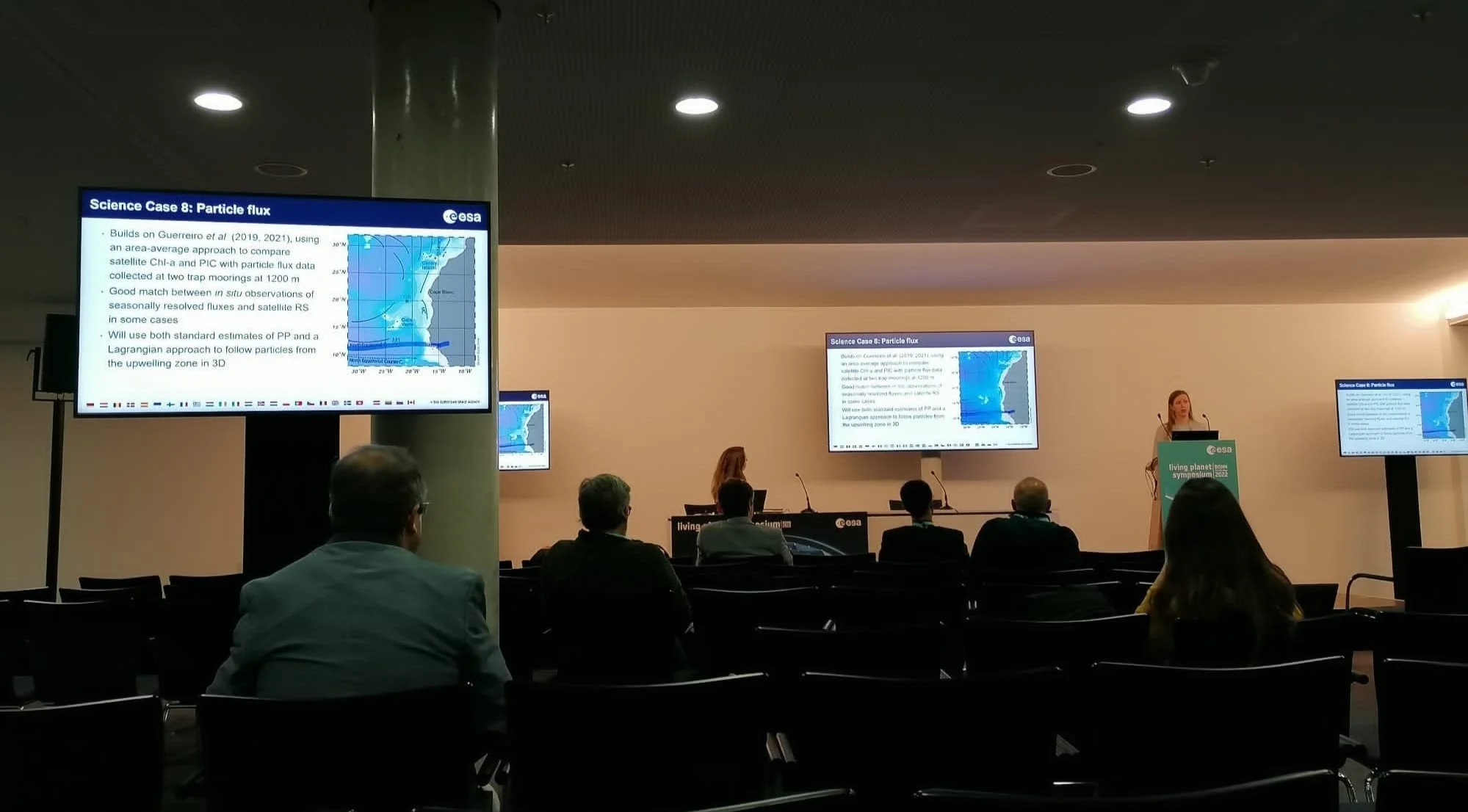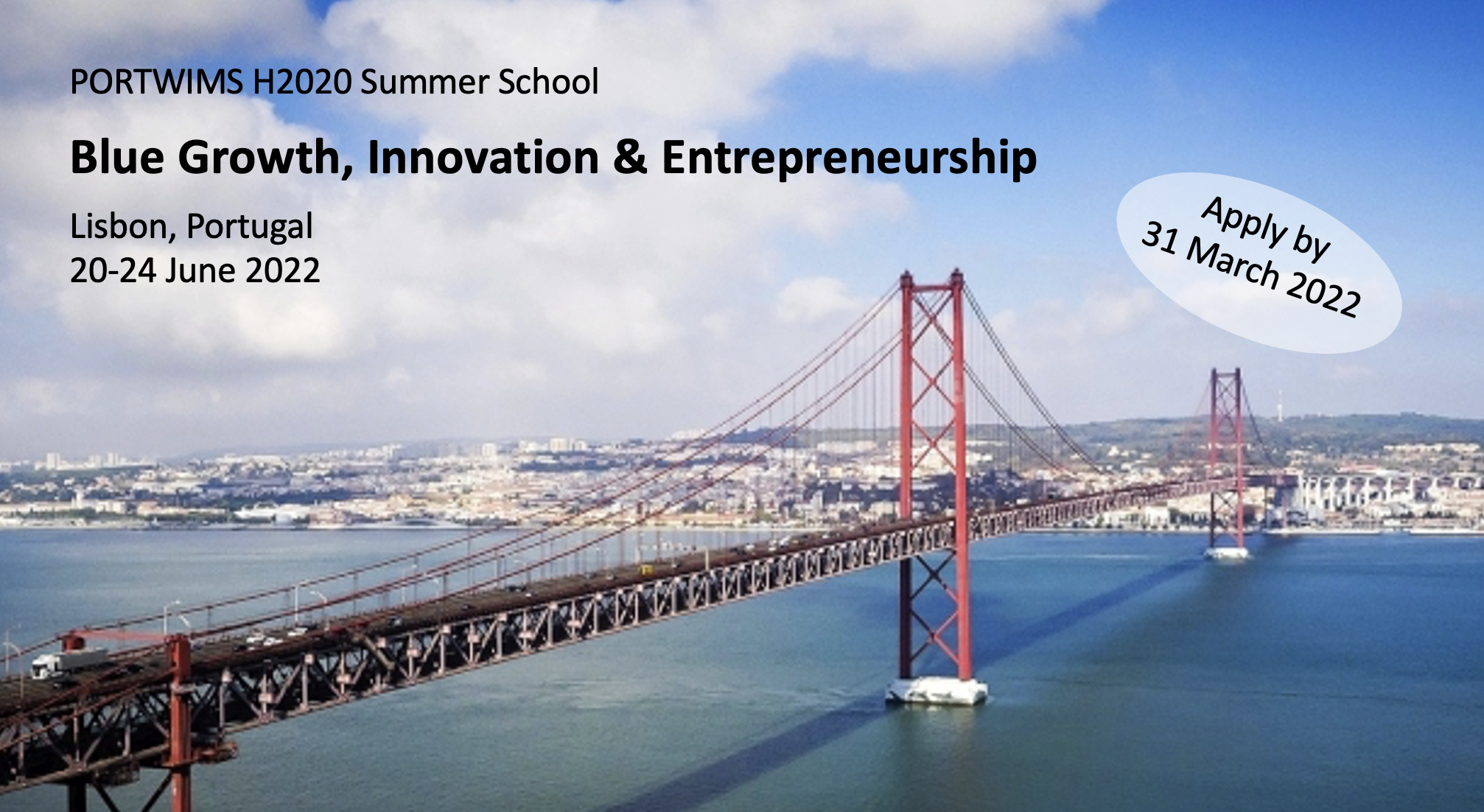WELCOME TO OUR NEWS PAGE!
Welcome to PRIMUS news page! Here, we will update you on the evolution of our research and share new articles and events in the course of the project. We created this space to shorten the distance between scientists and the general public, and promote an on-line discussion over these and other related topics. So feel free to participate, either by ask questions and/or by providing feedback to our posts!
CBIOMES is a multi-institution effort seeking to characterise biogeography of key marine microbes at basin and seasonal scales, to ask how organismal characteristics and interactions shape these patterns, and to understand and quantify the relationship between biogeography and elemental cycles.
The potential of using new AI tools to understand global natural phenomena was emphasised during the seminar, by combining ocean models, satellite data and field observations, and through maximizing the use of ocean data – even those of lower quality – and still finding significant results.
Based on satellite data spanning 1999–2021, Afonso Ferreira and colleagues reveal that the highest anchovy recruitment appears to coincide with the annual spawning peak occurring from April through June, often linked to the positive phase of the Winter North Atlantic Oscillation (NAOW).
Among the main points of the meeting was to present an overview of the progress and project deliverables linked to WP5 Advancing Earth System Science, and WP6 Transferring Science into Solutions for Society, for which all Earth Science Case and Demonstrations leaders presented the work performed during the project.
In addition to a suite of climatically relevant parameters, the 25-year time series of 1 km satellite-derived NPP over all Atlantic EBUS and the 300 m resolution NPP data for the Galician Rias developed during the project are now freely available to be viewed, explored, manipulated and analysed in the newly launched PRIMUS web GIS portal.
The event was part of PRIMUS WP6 aimed at conducting demonstrations that transfer science into developing societal solutions, building on PRIMUS science case studies (EBUS and aquaculture, fisheries and eutrophication monitoring), and working together with scientific, agency, policy and commercial early adopters.
The COP to the UN Framework Convention on Climate Change (UNFCCC) is an annual international climate summit that gathers leaders from across the world (197 countries plus the European Union) to work together on solutions to tackle climate change, including the Paris Agreement.
The symposium was hosted by the Plymouth Marine Laboratory (PML) to celebrate the scientific life of Prof. Trevor Platt and carry forward his legacy in ocean research and international collaboration, by gathering experts and institutions from diverse backgrounds to explore the challenges and solutions related to sustainable management of the ocean.
FEC is a Global Research Network of Future Earth acting as a platform for deepening understanding of complex Earth systems and human dynamics across different disciplines, translating sustainability knowledge into action by using it to underpin evidence-based policies and strategies for sustainable development.
The study involves a comparative analysis of the 25-year time-series of NPP data for the Iberian, Canary and Benguela systems in relation to upwelling indices and variations in climate indices, such as the North Atlantic Oscillation (NAO).
The conference was organised by the City Hall of Torres Vedras (Portugal) at the Environmental Interpretation Centre of the Local Natural Reserve Foz Azul, aimed at creating awareness in the general public to the many ecosystem services that seaweeds offer and their contribution to the well-being of our planet.
This special issue, in which PRIMUS member Catarina V. Guerreiro (MARE-FC.ID) has been invited as guest editor, is an outcome of the Open Science Conference on EBUS: Past, Present and Future & Second International Conference on the Humboldt Current System. The deadline for submissions is 31 January 2024!
The workshop was hosted by the Institute for Data Science and Artificial Intelligence, aimed at facilitating the share of scientific discoveries and methods, the exploration of emerging applications and new opportunities for remote sensing and machine learning, and the fostering of new collaborations and network-building.
Afonso Ferreira (MARE) and colleagues report on SST being the main driver of sardine growing from very young, small larvae state to older, larger-sized fish in Atlanto-Iberian waters. Other factors include specific physical conditions favouring larval feeding and retention, such as the shallowing of the ocean mixed layer and the transport of water masses towards the more coastal regions.
BICEP has recently launched a valuable animation about the importance of marine phytoplankton as the main player in the ocean biological carbon pump, while also highlighting how Earth Observation data contribute crucially to unravel the functioning of biogeochemical ocean-related processes.
The TPSF is an international organisation established in 2021 to stimulate capacity building in science, research, and environment-related education with special focus on the oceans, aiming at promoting a more sustainable governance of our planet for the future generations.
The expedition was aimed at collecting new in situ data to explore the multiple drivers of phytoplankton (export) productivity in a region of the Canary Current EBUS bordered by the single most important source of atmospheric dust emission on a global scale: the Saharan and Sahel Desert regions.
Bror Jönsson and Shubha Sathyendranath from PML have developed a new method to estimate dominating timescales of variability from datasets where up to 90% of the data is missing: MOving Standard deviation Saturation (MOSS). Their work has just been published in Remote Sensing of Environment and represents the first scientific output from PRIMUS.
More than two months after the first expedition of PRIMUS-related project e-IMPACT, Javier Arístegui and Xosé A. Álvarez-Salgado returned on RV Sarmiento de Gamboa to look for more clues on the impact of eddy-related processes on plankton variability in the Canary Current EBUS.
Among the main points of the meeting was the kick-off of WP5 (Advancing Earth System Science) during which our team will be actively working to maximise the scientific and societally outputs of PRIMUS over the next months, with the goal of advancing the existing understanding of the spatiotemporal variability of primary production in all Atlantic EBUS.
Javier Arístegui and Catarina V. Guerreiro presented PRIMUS project at the Open Science Conference on EBUS in Lima, Peru. The meeting gathered stakeholders and representatives of the inter- and multidisciplinary ocean and atmospheric science communities from all over the world.
PRIMUS team collaborates with IPMA/CCMAR to study (paleo)ecological processes in the productive coastal upwelling waters off Iberia. Our plan is to contribute to understand the nature of modern ecological changes in relation to the pre-industrial conditions.
Javier Arístegui, Xosé A. Álvarez-Salgado and Nauzet Hernández-Hernández were recently on board of RV Sarmiento de Gamboa as part of PRIMUS-related e-IMPACT, a project aimed at exploring the influence of mesoscale eddies formed in the Canary Islands on primary production and the biogeochemical properties of the Canary Current EBUS.
Catarina Guerreiro (MARE-FC.ID), Javier Aristegui and Nazeut Hernández (ULPGC) will be presenting their EBUS-related research at Session 7 ("Understanding the driving factors of marine productivity in EBUS”) of the forthcoming EBUS Conference to be held in Lima, Peru, 19-23 September 2022.
The debate included a panel of experts in marine research together with an audience of stakeholders, discussing key topics to foster scientific collaboration between Portugal and the UK, including the transfer of data, joint use of scientific platforms, researchers’ mobility and capacity building, and advance training.
In addition to bringing her experience linking phytoplankton observed in-situ to the remote sensing of the color of the ocean, Vanda Brotas referred PRIMUS as a good example of such synergy between the two observational approaches.
Gemma Kulk, a phytoplankton physiologist from PML and one of PRIMUS team members, has recently presented our project at the European Space Agency’s 2022 Living Planet Symposium on 23-27 May 2022 in Bonn, Germany.
PRIMUS member Vanda Brotas was the first guest featured on the new podcast Azul (Blue), to talk about science, phytoplankton, and the children books that she wrote to combine adventures with the dissemination of science, including the important role of satellite observation towards understanding and protecting the ocean.
PRIMUS member Prof. Dr. Javier Arístegui (Universidad de Las Palmas de Gran Canaria, Spain) is part of the Organizing Committee and will be amongst the conveners of the the forthcoming Open Science Conference on EBUS: Past, Present and Future & Second International Conference on the Humboldt Current System.
PORTWIMS H2020 Summer School will includes the participation of keynote speakers from PRIMUS team, including Prof. Steve Groom (PML) who will give a talk on "Earth Observation Opportunities in Marine Science, from Ocean to Coast". Applications until the 31th March!






